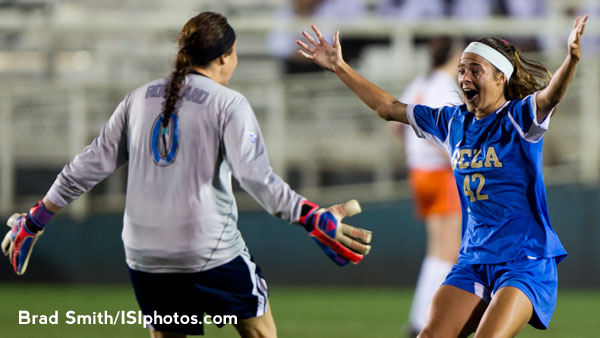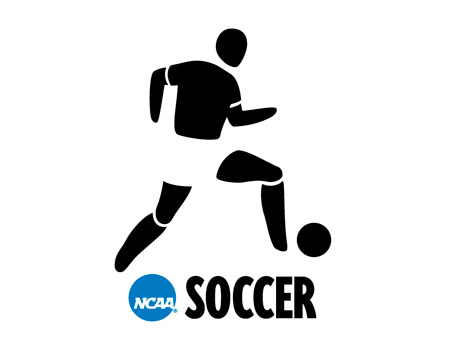NCAA relocates D1 women’s, D3 College Cups out of North Carolina

The NCAA announced on Monday that its Board of Governors has decided to relocate its 2016 Division I women’s soccer, Division III women’s soccer and Division III men’s soccer national championship events, along with those of five other sports, out of North Carolina “because of the cumulative actions taken by the state concerning civil rights protections.”
 The BoG made its decision in the wake of the state’s passage of the Public Facilities Privacy & Security Act, widely known as House Bill 2, a contentious piece of legislation that eliminates anti-discrimination protections for gay, bisexual, transgender and intersex people and regulates the use of public restrooms based on the gender listed on users’ birth certificates.
The BoG made its decision in the wake of the state’s passage of the Public Facilities Privacy & Security Act, widely known as House Bill 2, a contentious piece of legislation that eliminates anti-discrimination protections for gay, bisexual, transgender and intersex people and regulates the use of public restrooms based on the gender listed on users’ birth certificates.
“Fairness is about more than the opportunity to participate in college sports, or even compete for championships,” said NCAA president Mark Emmert in a statement. “We believe in providing a safe and respectful environment at our events and are committed to providing the best experience possible for college athletes, fans and everyone taking part in our championships.”
The 2016 D1 women’s College Cup was originally scheduled for Cary’s WakeMed Soccer Park on Dec. 2 and 4, while the D3 Men’s and Women’s Soccer Championships were planned for Dec. 2 and 3 in Greensboro. Most prominently for the nation as a whole, the decision means that “March Madness” hoops will bypass North Carolina soil, with the relocation of first- and second-round NCAA D1 men’s basketball games previously scheduled for Greensboro.
The NCAA announcement said the organization “will determine the new locations for these championships soon.” The decision will not affect championship events held at “nonpredetermined sites” — venues decided when players and teams earn the opportunity to play a championship on their own campus — in North Carolina.
The Atlantic Coast Conference is discussing HB2’s effects on its own NC-based championship events at its Council of Presidents meeting this week and could follow the NCAA’s lead. The ACC Women’s Soccer Championship is currently set for WakeMed on Nov. 4 and 6.
“Although the law’s supporters have moved to frame it as a public safety measure, critics have forcefully described it as bigoted and anachronistic,” said the New York Times in reference to House Bill 2. “In a letter in May, the Justice Department asserted that the statute violated federal civil rights law, an accusation state officials loudly resisted.
“The NCAA’s decision on Monday came less than a month after a Federal District Court judge in Winston-Salem issued a limited ruling against the law and said the 17-campus University of North Carolina could not enforce the statute’s restroom access provisions against three people who had filed suit.”
Referring to its own constitution, which “clearly states our values of inclusion and gender equity,” the NCAA compared the relocation of the North Carolina-based events to previous decisions not to host events in states “where governments display the Confederate battle flag or authorize sports wagering and at schools that use hostile and abusive Native American imagery.”
Advocacy organizations dubbed the news a major breakthrough for LGBT rights, while the North Carolina Republican Party and other groups reacted negatively to the NCAA’s move.
“It’s long past time state lawmakers repealed this vile law,” Chad Griffin, the president of the Human Rights Campaign, told the Times. “And if they don’t, the majority of voters opposed to H.B. 2 will ensure they pay the price in November.”
Soon-to-be-retired U.S. Women’s National Team veteran and NWSL standout Heather O’Reilly, a North Carolina resident and graduate of UNC, was among the first and most visible star players to react to Monday’s developments:
The full list of NCAA events affected by Monday’s decision:
- 2016 Division I Women’s Soccer Championship, College Cup (Cary), Dec. 2 and 4.
- 2016 Division III Men’s and Women’s Soccer Championships (Greensboro), Dec. 2 and 3.
- 2017 Division I Men’s Basketball Championship, first/second rounds (Greensboro), March 17 and 19.
- 2017 Division I Women’s Golf Championships, regional (Greenville), May 8-10.
- 2017 Division III Men’s and Women’s Tennis Championships (Cary), May 22-27.
- 2017 Division I Women’s Lacrosse Championship (Cary), May 26 and 28.
- 2017 Division II Baseball Championship (Cary), May 27-June 3.











